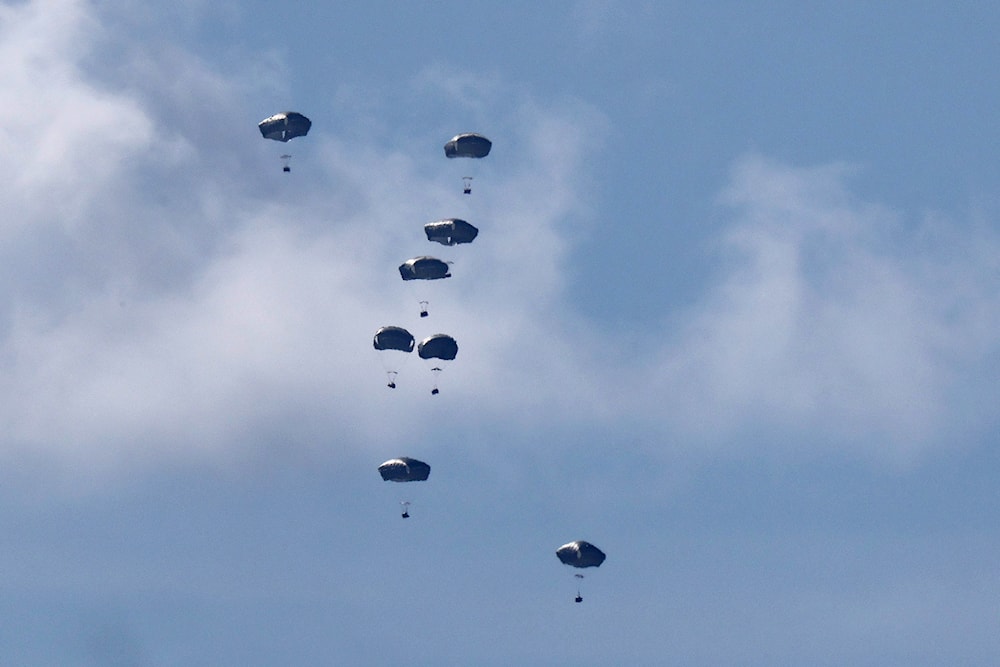Airdropping Gaza aid cannot substitute land deliveries: UN coordinator
The UN aid coordinator for Gaza says the diversification of the supply routes via land remains the optimal solution.
-

Humanitarian aid falls over northern Gaza, on March 7, 2024. (Photo by JACK GUEZ / AFP)
Delivering humanitarian supplies to Gaza by airdrops or sea cannot sufficiently substitute land deliveries, the UN aid coordinator for the Gaza Strip emphasized Thursday after a closed-door Security Council meeting.
Sigrid Kaag said her message to the UN Security Council was that the international community must "flood the market in Gaza with humanitarian goods" and "re-energize the private sector" so more commercial goods can enter to meet civilians' needs.
"The diversification of the supply routes via land" remains the optimal solution, she stressed.
"It's easier, it's faster, it's cheaper, particularly if we know that we need to sustain humanitarian assistance to Gazans for a long period of time."
Her remarks came after the White House on Thursday announced plans to build a port in Gaza to get more humanitarian aid in and after several countries, including the United States, have dropped aid from airplanes in recent days.
Kaag welcomed the airdrops, which she said were a "symbol of support for the civilians in Gaza" and a "testimony to our shared humanity."
"But it's a drop in the ocean, it is far from enough," said the former Dutch Finance Minister who was appointed in December following a Security Council resolution calling for "large-scale" aid for Gaza.
Asked about the main obstacles to delivering aid to the people of Gaza, Kaag pointed to the complicated border inspection process by the Israeli occupation forces.
"If everything goes through one or two crossings, it's harder to process. Verification checking takes time. There are cumbersome processes," she said.
Stephane Dujarric, the UN secretary-general's spokesperson, said that trucks arriving at the Rafah crossing on the Egypt-Gaza border must be unloaded after inspection and then reloaded, often onto smaller trucks.
"And then we need to find ways to distribute it; we need to find ways to facilitate that distribution in many areas, which requires the security coordination with the Israeli forces," he added.
'Israel' using starvation tactic in Gaza to destroy food system: UN
Earlier on Thursday, a UN expert warned that the Israeli occupation was destroying Gaza's food system as part of a larger "starvation campaign".
According to Reuters, in a speech to the UN Human Rights Council, Michael Fakhri, UN Special Rapporteur on the Right to Food, asserted that the UN was "doing nothing" as "unbearable" images surfaced from Gaza.
Aid authorities have warned of a potential famine, while hospitals in the besieged Strip's remote northern region report that children are dying of starvation.
Fakhri told the council that "Israel has mounted a starvation campaign against the Palestinian people in Gaza," adding that this included fishermen.
Read more: Famine in Gaza causing women to give birth to stillborn babies

 3 Min Read
3 Min Read








